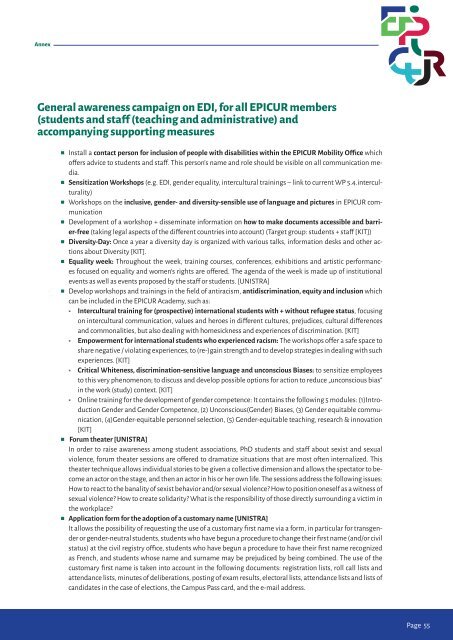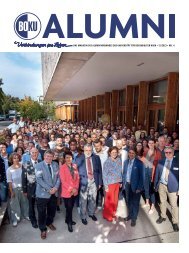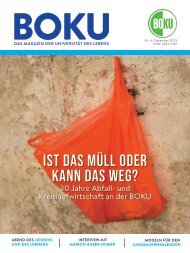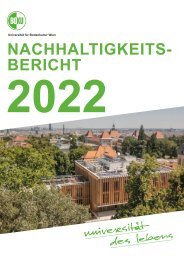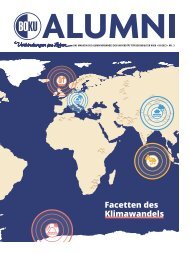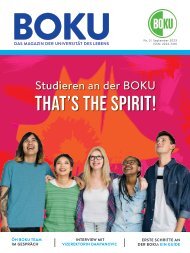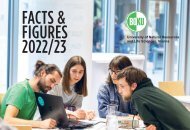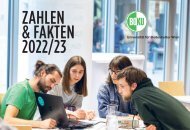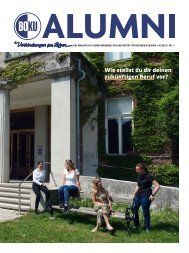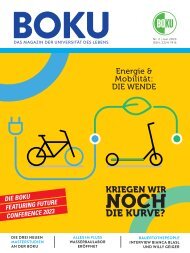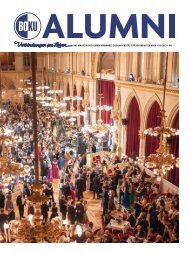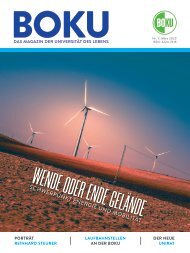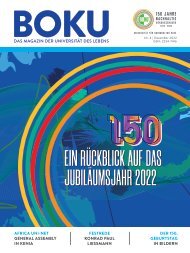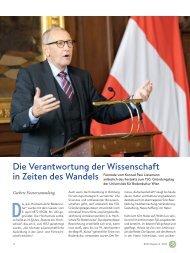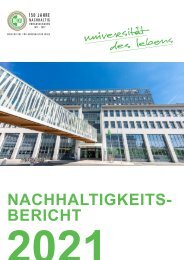EPICUR EDI Toolkit
Create successful ePaper yourself
Turn your PDF publications into a flip-book with our unique Google optimized e-Paper software.
Annex<br />
General awareness campaign on <strong>EDI</strong>, for all <strong>EPICUR</strong> members<br />
(students and staff (teaching and administrative) and<br />
accompanying supporting measures<br />
• Install a contact person for inclusion of people with disabilities within the <strong>EPICUR</strong> Mobility Office which<br />
offers advice to students and staff. This person’s name and role should be visible on all communication media.<br />
• Sensitization Workshops (e.g. <strong>EDI</strong>, gender equality, intercultural trainings – link to current WP 5.4.interculturality)<br />
• Workshops on the inclusive, gender- and diversity-sensible use of language and pictures in <strong>EPICUR</strong> communication<br />
• Development of a workshop + disseminate information on how to make documents accessible and barrier-free<br />
(taking legal aspects of the different countries into account) (Target group: students + staff [KIT])<br />
• Diversity-Day: Once a year a diversity day is organized with various talks, information desks and other actions<br />
about Diversity [KIT].<br />
• Equality week: Throughout the week, training courses, conferences, exhibitions and artistic performances<br />
focused on equality and women‘s rights are offered. The agenda of the week is made up of institutional<br />
events as well as events proposed by the staff or students. [UNISTRA]<br />
• Develop workshops and trainings in the field of antiracism, antidiscrimination, equity and inclusion which<br />
can be included in the <strong>EPICUR</strong> Academy, such as:<br />
■ Intercultural training for (prospective) international students with + without refugee status, focusing<br />
on intercultural communication, values and heroes in different cultures, prejudices, cultural differences<br />
and commonalities, but also dealing with homesickness and experiences of discrimination. [KIT]<br />
■<br />
■<br />
■<br />
Empowerment for international students who experienced racism: The workshops offer a safe space to<br />
share negative / violating experiences, to (re-)gain strength and to develop strategies in dealing with such<br />
experiences. [KIT]<br />
Critical Whiteness, discrimination-sensitive language and unconscious Biases: to sensitize employees<br />
to this very phenomenon; to discuss and develop possible options for action to reduce „unconscious bias“<br />
in the work (study) context. [KIT]<br />
Online training for the development of gender competence: It contains the following 5 modules: (1)Introduction<br />
Gender and Gender Competence, (2) Unconscious(Gender) Biases, (3) Gender equitable communication,<br />
(4)Gender-equitable personnel selection, (5) Gender-equitable teaching, research & innovation<br />
[KIT]<br />
• Forum theater [UNISTRA]<br />
In order to raise awareness among student associations, PhD students and staff about sexist and sexual<br />
violence, forum theater sessions are offered to dramatize situations that are most often internalized. This<br />
theater technique allows individual stories to be given a collective dimension and allows the spectator to become<br />
an actor on the stage, and then an actor in his or her own life. The sessions address the following issues:<br />
How to react to the banality of sexist behavior and/or sexual violence? How to position oneself as a witness of<br />
sexual violence? How to create solidarity? What is the responsibility of those directly surrounding a victim in<br />
the workplace?<br />
• Application form for the adoption of a customary name [UNISTRA]<br />
It allows the possibility of requesting the use of a customary first name via a form, in particular for transgender<br />
or gender-neutral students, students who have begun a procedure to change their first name (and/or civil<br />
status) at the civil registry office, students who have begun a procedure to have their first name recognized<br />
as French, and students whose name and surname may be prejudiced by being combined. The use of the<br />
customary first name is taken into account in the following documents: registration lists, roll call lists and<br />
attendance lists, minutes of deliberations, posting of exam results, electoral lists, attendance lists and lists of<br />
candidates in the case of elections, the Campus Pass card, and the e-mail address.<br />
Page 55


